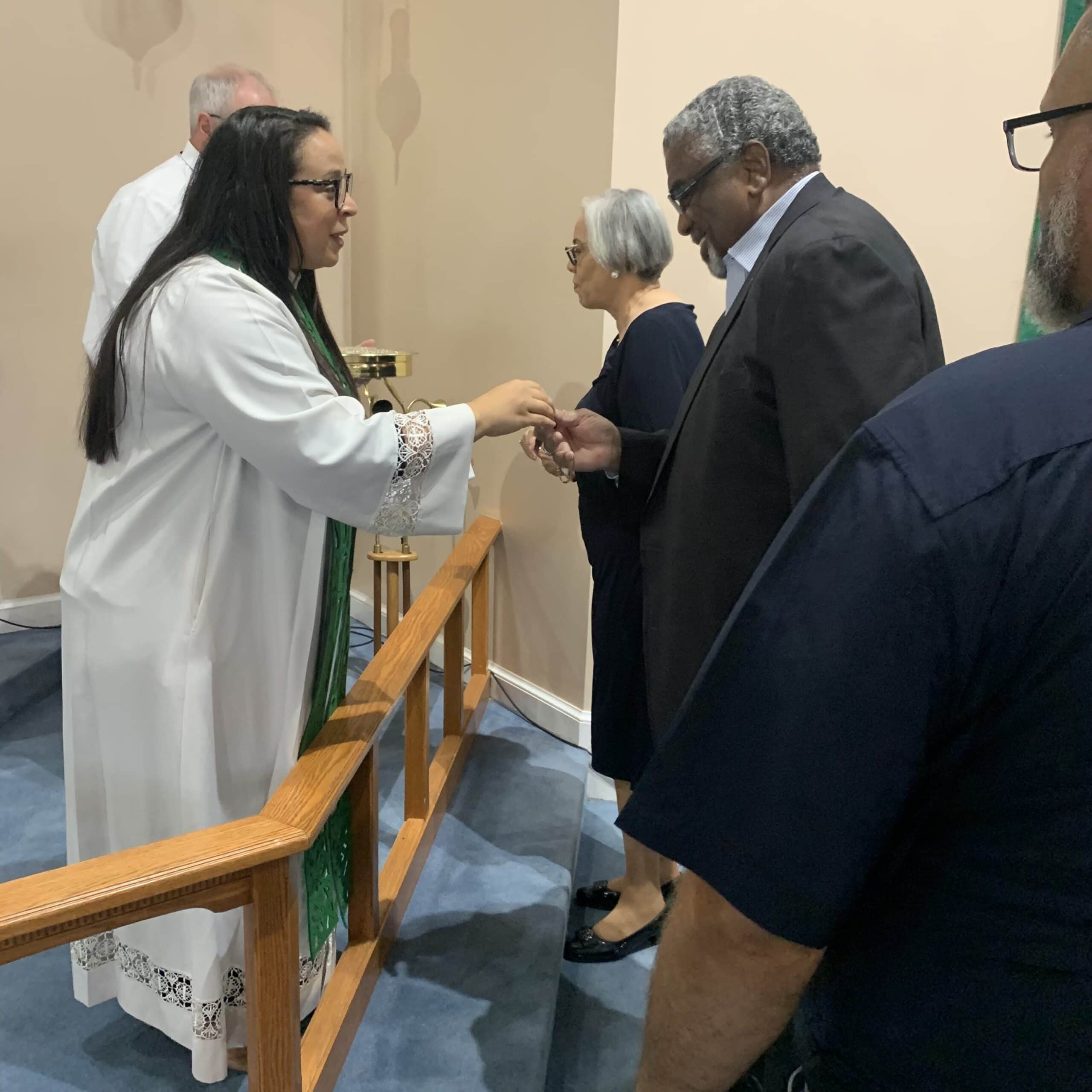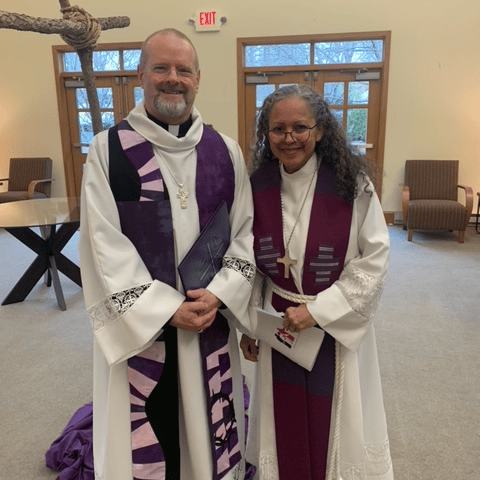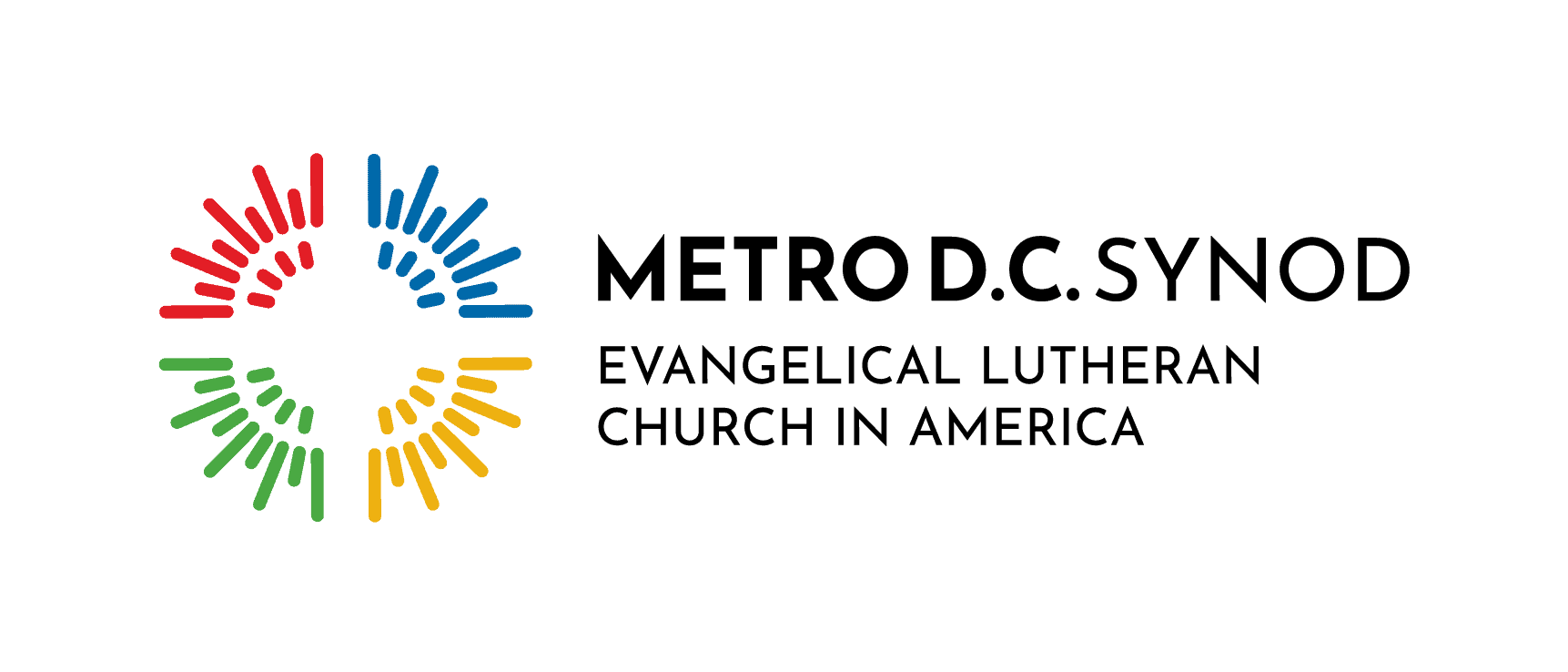The ELCA needs people who love Jesus and love people and who are grounded in faith, educationally prepared and emotionally suited to service as rostered ministers in the ELCA. Ministers on the roster of the ELCA include Pastors and Deacons.
In order to enter the formal Candidacy process in the ELCA, the Metropolitan Washington, D.C. Synod adopted an intentional discernment process for all considering this path. This process, in addition to conversation with the synod office, helps clarify next steps and begin a relationship of accompaniment.
questions?
Contact the Candidacy Committee Chairperson at candidacy@metrodcelca.org
Guide to an Intentional Year of Discernment
If you are experiencing the stirrings of the Spirit for a call to ministry, the Metro D.C. Synod Candidacy Committee invites you to engage an intentional journey of discernment over a six-month period.
Monthly discernment cohorts provide space for you to actively discern your call and are launched every 6 months or so.
We provide:
-
Purposeful spaces to ask hard questions,
-
Informal and structured wrestling time,
-
Committed resources to ponder what God is calling you to next

What is Candidacy in the ELCA?
Candidacy in the ELCA is the churchwide process of preparation and formation leading to
- the ordained ministry of Word and Sacrament, or
- the ordained ministry of Word and Service
The candidacy process is a partnership with the candidate for rostered ministry, the synod candidacy committee, the seminary and the Vocation and Education unit of the ELCA. In the Lutheran tradition, a person’s individual or internal sense of call to ordained ministry must be confirmed by the larger community of the church.
Role of the Candidacy Committee
By the power of the Holy Spirit, the candidacy process invites chosen representatives of the church to determine whether a person’s character, ability, health and wellness, spiritual formation, preparation and commitment are appropriate for the roster on which that person seeks to serve.

Candidacy Process Overview
Journey of Discernment
Pre-entrance is a period of discernment preceding Entrance into the candidacy process. It can assist people in reflecting on aspects of their lives that might confirm a call to rostered ministry or other kinds of leadership in the ELCA.
Some aspects worthy of consideration are:
- an understanding of vocation,
- spirituality and prayer life,
- formative life experiences,
- relationship with a community of faith,
- significant life influences, including family of origin,
- the ability to articulate what God is calling a person to pursue vocationally, and
- openness to the call of the church wherever it has a need.
A call to leadership can come in many ways and lead in many directions.
Pre-entrance is an informal pathway – not a step in candidacy per se – that leads toward a clearer understanding of the path God may be calling a person to pursue.
The Metro D.C. Synod hosts virtual and in-person discernment cohorts to assist in a person’s discernment of their call.
Entrance
Entrance is the step in candidacy when a person begins to work with a synodical Candidacy Committee.
Granting Entrance means that a Candidacy Committee is welcoming and accepting an applicant into candidacy. As an applicant assesses their own sense of call, the committee also assesses an applicant’s readiness for various kinds of leadership. An Entrance decision normally assumes an applicant is considering some type of rostered leadership in the ELCA.
- In preparation for candidacy, a number of the steps involved can further assist an applicant’s discernment.
The applicant’s home congregation completes a Congregational Registration Form based on active ELCA membership for a minimum of one year. - The applicant completes a Candidacy Application Form and writes an Entrance Essay.
- The applicant participates in a psychological evaluation.
- The Candidacy Committee requests a background check for each applicant and conducts an Entrance interview with the applicant.
- The applicant completes a Personal Health Assessment and prepares a financial worksheet.
- The Candidacy Committee receives copies of all post-secondary education transcripts and continuing education certificates.
Normally, once a Candidacy Committee grants an applicant Entrance, the candidate will select a seminary and apply for admission. In some cases, an applicant may apply for Entrance after being enrolled in a seminary.
For candidates attending non-ELCA seminaries, affiliation with an ELCA seminary will normally occur soon after Entrance.
Endorsement
Endorsement is a second major point of discernment for both a candidate and a Candidacy Committee and usually occurs after 1 year of seminary education and the successful completion of term of Clinical Pastoral Education.
Endorsement focuses on the type of rostered leadership for which a candidate is best suited and a candidate’s readiness to complete candidacy successfully. In this phase of the process, collaboration and
communication between a Candidacy Committee and the appropriate seminary faculty are critical.
When a Candidacy Committee grants Endorsement, it means the Candidacy Committee recognizes and affirms a candidate’s readiness to complete the candidacy process.
Endorsement also affirms a candidate’s demonstration of appropriate gifts and characteristics for a specific roster in the ELCA.
- A candidate prepares an Endorsement Essay in preparation for an interview with Candidacy
- Committee members and seminary faculty.
- A candidate submits a CPE (Clinical Pastoral Education) evaluation to the Candidacy Committee.
- The appropriate seminary provides a transcript to the Candidacy Committee.
Approval
The final step in the candidacy process is Approval.
A Candidacy Committee, the seminary of enrollment (or affiliation), and a candidate discern together a readiness for service as a rostered leader in the ELCA following the successful completion of all academic and candidacy requirements.
- A candidate submits an Approval Essay to the appropriate seminary faculty and to the Candidacy Committee.
- The seminary faculty prepares a recommendation for Approval (form D) and submits it to the Candidacy Committee.
- The Candidacy Committee receives an internship evaluation report (for those seeking ordination) or an evaluation of supervised field experience (for Word and Service candidates).
- The seminary provides the Candidacy Committee with transcripts for the candidate.
When a Candidacy Committee grants Approval, it is acknowledging that a candidate is qualified and competent to serve under call in a specific rostered ministry.
Assignment & Call
The bishop or designated staff person of each synod in the region and the Candidacy and Leadership Manger of the region will meet at a scheduled regional consultation to discuss the candidate and determine a post-approval First Call plan for the candidate, including helping to determine in which region or synod the candidate will be available to interview for first call.
Relevant information about the process is available on the ELCA website.
Questions?
If you have any questions about the ELCA candidacy process, please reach out to the Metro D.C. Synod Candidacy Committee Chair.





